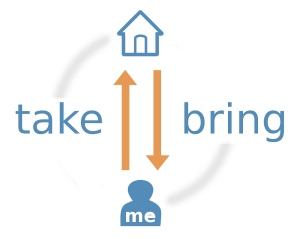We often use the word “if” in English, and I think most people understand it well. However, by adding the word “as” to it will change its meaning. The expression “as if” is used when we want to express rejection of an idea or statement. It’s like saying that a certain idea or statement is impossible. For example:
A: You’re not really going to join the army, are you?
B: I was kidding! As if I would really do that!
_________________________________________________________________
A: Did you hear the latest gossip about Paris Hilton?
B: As if I care about Paris Hilton! I have more important things to think about.
_________________________________________________________________
A: John said he was going to buy a BMW!
B: I doubt that! As if he has enough money for a car like that!
_________________________________________________________________
A: Is Sharon coming to your party?
B: Are you kidding? As if I’d invite her! She stole my boyfriend last year, remember?
As you can see, it’s usually used as a response to what someone else is saying, and is used to reject the other person’s idea or statement. This expression can sound a little strong when we use it, so it should only be used in casual conversations with friends and never in formal situations or with people of higher status.









